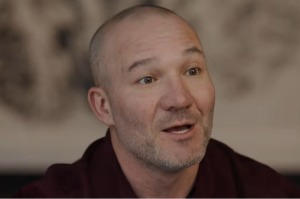Contributors defend devotional book asking God for help to 'hate white people'

Contributors to a devotional book featuring a prayer that asks God for help to "hate white people" have come to the author's defense, saying people are missing the full context of the piece.
Screenshots of the devotional book A Rhythm of Prayer: A Collection of Meditations for Renewal were posted online last week by users who objected to the inclusion of a prayer titled "Prayer of a Weary Black Woman" by Chanequa Walker-Barnes, a professor of practical theology at Mercer University.
"Dear God, Please help me to hate White people. Or at least to want to hate them. At least, I want to stop caring about them, individually and collectively. I want to stop caring about their misguided, racist souls, to stop believing that they can be better, that they can stop being racist," the passage read.
On Saturday, one of the members of my church sent me these images of a “devotional” she found in Target. This kind of thinking is a direct result of CRT and is completely anti-biblical. I shared the first page on Saturday but let me now share the whole thing for context: pic.twitter.com/oiRxHQXY53
— Ryan McAllister ? (@RyanTMcAllister) April 5, 2021
Walker-Barnes is described in her bio as "a clinical psychologist, public theologian, and ecumenical minister whose work focuses upon healing the legacies of racial and gender oppression."
The genesis of much of the pushback against the book appears to have started with a Twitter post by Ryan McAllister, an evangelical pastor from Alexandria, Virginia, who shared images of passages from the book that one of his parishioners had taken at Target, where the book is being sold. The prayers, he said, are "completely anti-biblical" and a direct influence of critical race theory.
Ariel Gonzalez Bovat, who describes herself on Twitter as a counselor and theologian, added: "It’s a travesty this kind of writing comes from a former clinical psychologist turned 'ordained minister.' Under no context should these words be an acceptable method of expression for professing Christians."
Upon discovering that excerpts of her book were circulating online, Walker-Barnes defended her writing.
"I took my rage to God in prayer. I owned it. I was truthful to God about what I was struggling with. And I prayed for God not to let anger and hatred overwhelm me," she said in an April 5 tweet.
"I prayed to be true to the biblical mandate for peace, justice, & reconciliation even though I don't think it's possible."
She further explained in a subsequent blog post that she had been relentlessly harassed, that conservatives were targeting her and those who criticized her words were misrepresenting her and others who do "intersectional justice work."
"In all truth, my familial and personal experiences of racism have given me thousands, maybe even millions, of reasons to hate White people. It could easily be seen as justified. And I could find biblical precedent for it," she wrote.
Contributors to the devotional book, edited by progressive author Sarah Bessey, also defended the prayer in a statement released Thursday.
While some might consider the request to God for help to hate white people "to be a provocative start to a prayer, its intentional extraction from the rest of the prayer obscures its context and the biblical model it is based on," the statement said.
Walker-Barnes was "bringing her weariness and her anger over the real sin of racism to God. In what is a clear moment of deep grief, she is talking intimately with her God about her exhaustion, her longing to simply not care anymore. We are given a vulnerable glimpse of her lament, her suffering, her weariness at the call to love her neighbours even when they oppress and marginalize her as a Black woman," they added.
In her Twitter thread, Walker-Barnes stated that she is "one generation removed from sharecropping" and wrote that prayer "after a White person ... dropped the N-word in a casual conversation."
"When my grandfather was 7, he & his dad escaped from their SC sharecropping farm in the middle of the night. They ran away to FL. In the 1900s, y’all, they had to escape under the cover of darkness!" she wrote. "These are the stories I’ve grown up with my whole life."



























